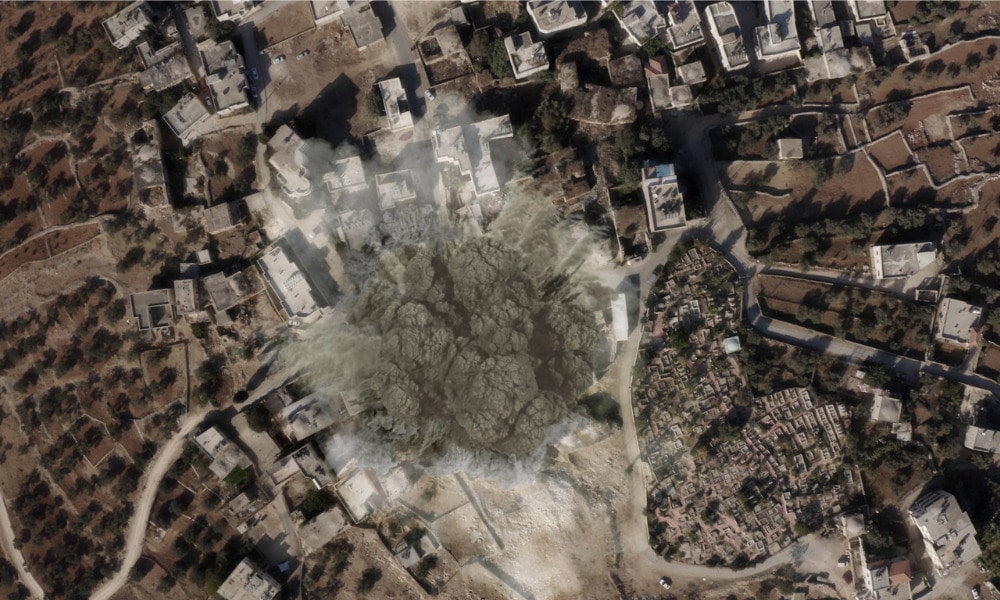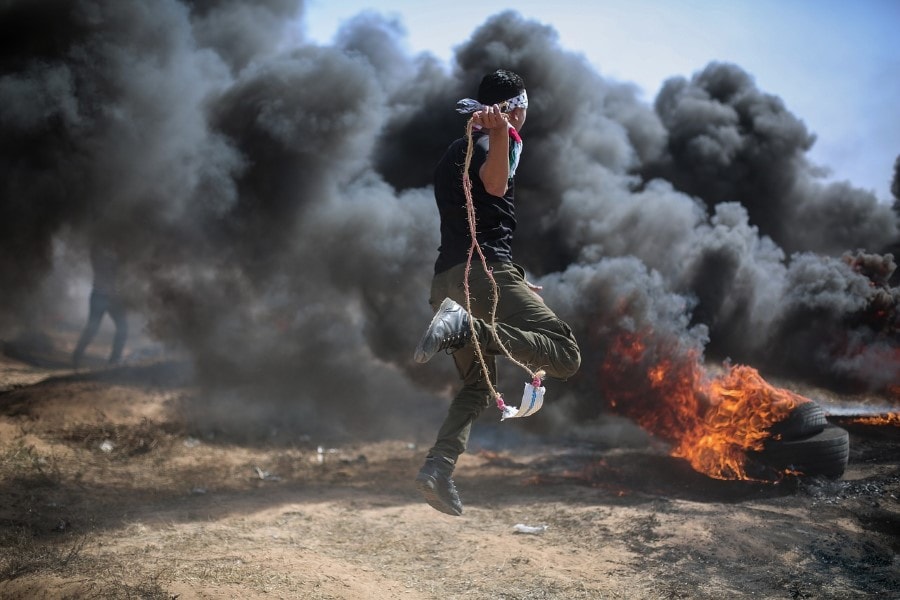
Israel achieved a stunning military victory in Gaza but suffered some setbacks. For Hamas, the situation is the exact reverse: The war was a military disaster, with some rewards beyond the battlefield.
In the short term, the IDF’s military achievements are more tangible. In the longer term, much will depend on Israel’s actions. A new Israeli strategy in Gaza will spell big trouble for Hamas, while clinging to the old routine will enable the terror group to become stronger and more dangerous. Ultimately, the results of the war will only become clear in months or years.
IDF defeats Hamas
In Gaza, the IDF devastated Hamas and Islamic Jihad’s military assets. Large sections of the terror tunnel network were destroyed, arms factories were wiped out, and some senior commanders were killed.
Hamas can rebuild its terror infrastructure, but it will take time and could prove harder if Israel takes a more aggressive approach. Replacing the assassinated research and development chiefs and experts will be more difficult.
Moreover, Hamas invested numerous resources in developing capabilities that failed to deliver any results. Naval commandos were unable to carry out even one successful attack and sustained heavy losses. Attempted raids into Israel were all blocked, with dozens of elite forces buried in tunnels. Terror drones were easily intercepted and had no impact on the battlefield. Anti-tank squads were eliminated en masse.
Hamas must be alarmed by the IDF’s ability to inflict tremendous damage within a short time, with minimal losses. One Israeli soldier was killed and barely any military gear was lost, certainly nothing of value. Over time, engaging in such fights and surviving this kind of disparity is not viable.
Terror groups did score some points by directing heavy rocket barrages at Israeli cities throughout the war. This was a moral blow to Israel, but with very limited results. Iron Dome shot down numerous missiles, which killed a total of 11 people. While every death is a tragedy, the rockets will have minimal consequences for Israel’s vast military or economy.
Israel was also able to develop, during the war, a more effective way to detect and destroy multi-barrel rocket launchers. The new technique is still being studied and upgraded, and could have a significant impact in a future conflicts.
Hamas gains unclear
Hamas certainly gained politically, but the practical implications remain unclear. The group asserted itself as a dominant force in Palestinian society, but how will it translate this into tangible results?
Notably, Hamas already controls Gaza, but is unlikely to take over the West Bank while Israel and the Palestinian Authority are there. Elections are nowhere in sight. The group also failed to spark widespread Palestinian violence, with only sporadic attacks and rioting in the West Bank during the war. Moreover, Hamas is still despised in most Arab capitals.

The Gaza conflict also heightened Arab-Jewish friction within Israel, but Hamas did not create it, merely exposed a problem that already existed, partly below the radar. In some respects, it did Israel a favor by highlighting an issue that must now be resolved. The full meaning of the events on this front will only become clear in the future.
Yet beyond the difficulty of capitalizing on its achievements, Hamas faces a potentially graver problem: Coping with the expected change in Israeli thinking. While the IDF did not fully destroy Hamas, the war likely terminated Israel’s doctrine for dealing with Gaza.
New Israeli strategy?
In the past decade, Israel allowed Hamas to receive large sums in aid and approved the transfer of many goods into Gaza, including dual-use products that can be utilized for terror purposes. In parallel, the IDF did little to stop the military buildup of terrorist groups. Any illusions that this would preserve the peace were shattered in the past two weeks.
Israeli leaders are already promising that things are about to change. Prime Minister Netanyahu stated Friday that Israel will no longer tolerate “drizzles” of rockets from Gaza. Shin Bet Chief Nadav Argaman declared that “the rules of the game have changed.” Time will tell whether these words are translated into action. It also remains to be seen when and how Hamas chooses to test Israel’s resolve.
Meanwhile, other officials and experts are calling for a new policy on Gaza. This could take many forms, but one way or another it will likely make things more difficult for Hamas. And with Netanyahu’s political future uncertain, it may be up to Israel’s next prime minister to change course.
If Israel sticks to the old approach, Hamas will become even more powerful and menacing. But a new strategy, especially one that also focuses on actively disrupting its militarization, would gradually weaken it and sap its strength. This may be achieved in different ways, including military and diplomatic moves.
A few years ago, ex-national security advisor Yaakov Amidror suggested that Israel should reverse its traditional military doctrine when it comes to Gaza, given the huge disparity in power between the two sides. In such cases, size does matter, he argued.
Instead of delaying wars, the IDF should initiate more frequent battles with Hamas to repeatedly erode its capabilities and power, Amidror said. Such dynamics could develop if Israel will indeed launch more strikes to disable Hamas assets, even at times of quiet. This policy would also fit with Israel’s increasingly preemptive war mode.
For now, Hamas will declare victory, lick its wounds, and embark on a massive rebuilding project. The success of this venture will depend on multiple factors and can’t be properly assessed at this time. In retrospect, the group may discover that this “win” set the stage for a strategic defeat down the road. Much depends on Israel’s next moves.


